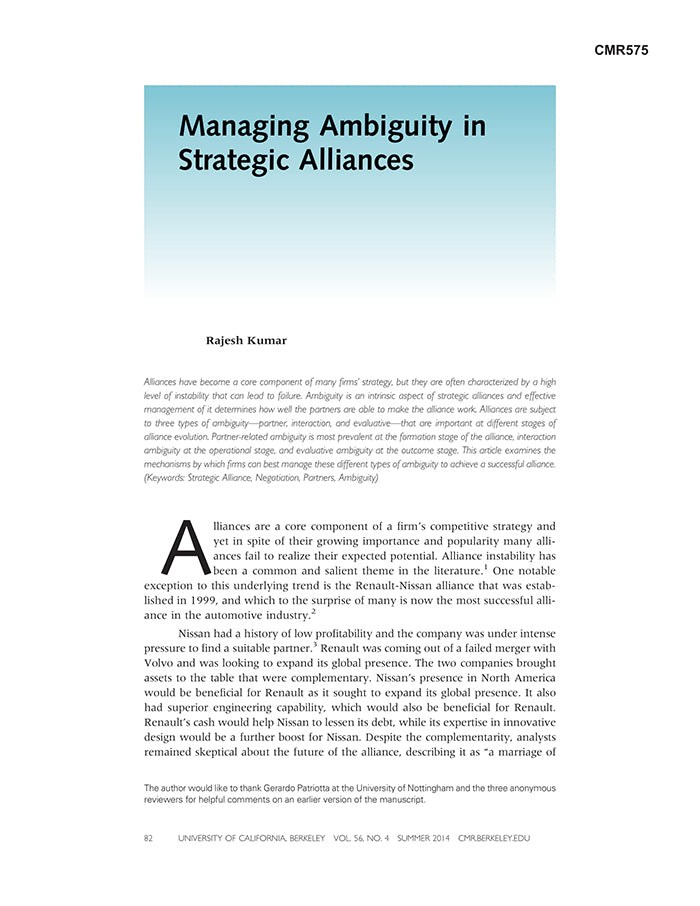Managing Ambiguity in Strategic Alliances
受取状況を読み込めませんでした
Alliances have become a core component of many firms' strategy, but they are often characterized by a high level of instability that can lead to failure. Ambiguity is an intrinsic aspect of strategic alliances and effective management of it determines how well the partners are able to make the alliance work. Alliances are subject to three types of ambiguity-partner, interaction, and evaluative-that are important at different stages of alliance evolution. Partner-related ambiguity is most prevalent at the formation stage of the alliance, interaction ambiguity at the operational stage, and evaluative ambiguity at the outcome stage. This article examines the mechanisms by which firms can best manage these different types of ambiguity to achieve a successful alliance.
【書誌情報】
ページ数:21ページ
サイズ:A4
商品番号:HBSP-CMR575
発行日:2014/9/1
登録日:2014/10/10


